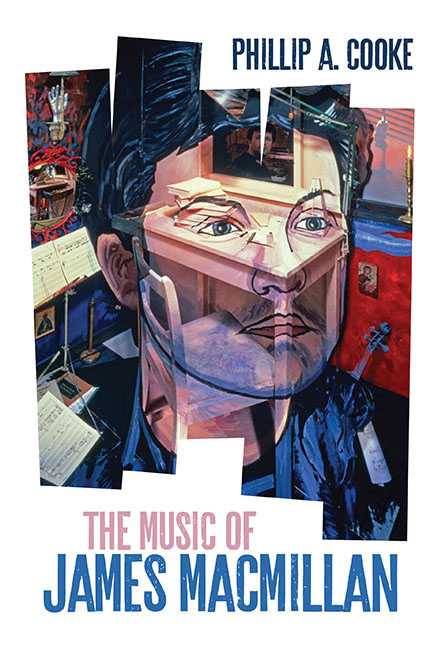Book contents
- Frontmatter
- Contents
- List of Plates
- List of Tables
- List of Music Examples
- Foreword
- Prologue
- Acknowledgements
- Permissions
- 1 The Keening – Cumnock, Edinburgh and Durham
- 2 The Tryst – Glasgow and the Road to Isobel Gowdie
- 3 Scots Songs – The Confession of Isobel Gowdie, Tuireadh and Veni, Veni, Emmanuel
- 4 A Different World – Visitatio Sepulchri, Seven Last Words from the Cross and Inés de Castro
- 5 Changed – Triduum and Quickening
- 6 Raising Sparks – ‘Scotland's Shame’, Politics and A Scotch Bestiary
- 7 A New Song – Mass and MacMillan 's Choral Renaissance
- 8 After Virtue – Symphony No. 3, The Sacrifice and the St John Passion
- 9 Serenity – Violin Concerto, Clemency and the St Luke Passion
- 10 Tu es Petrus – Bellahouston Park and the Return to Cumnock
- List of Works and Recordings
- Bibliography
- Index of Works by James MacMillan
- General Index
8 - After Virtue – Symphony No. 3, The Sacrifice and the St John Passion
Published online by Cambridge University Press: 31 August 2019
- Frontmatter
- Contents
- List of Plates
- List of Tables
- List of Music Examples
- Foreword
- Prologue
- Acknowledgements
- Permissions
- 1 The Keening – Cumnock, Edinburgh and Durham
- 2 The Tryst – Glasgow and the Road to Isobel Gowdie
- 3 Scots Songs – The Confession of Isobel Gowdie, Tuireadh and Veni, Veni, Emmanuel
- 4 A Different World – Visitatio Sepulchri, Seven Last Words from the Cross and Inés de Castro
- 5 Changed – Triduum and Quickening
- 6 Raising Sparks – ‘Scotland's Shame’, Politics and A Scotch Bestiary
- 7 A New Song – Mass and MacMillan 's Choral Renaissance
- 8 After Virtue – Symphony No. 3, The Sacrifice and the St John Passion
- 9 Serenity – Violin Concerto, Clemency and the St Luke Passion
- 10 Tu es Petrus – Bellahouston Park and the Return to Cumnock
- List of Works and Recordings
- Bibliography
- Index of Works by James MacMillan
- General Index
Summary
The first decade of the new millennium saw James MacMillan firmly recognised as one of the country's leading artists, with major commissions, broadcasts, recordings and festivals devoted to his music. The sense that MacMillan was becoming part of the musical establishment was cemented in 2004, when he was made a Commander of the Order of the British Empire (CBE) by the Prince of Wales in a ceremony at Buckingham Palace, London. Although the fall-out from ‘Scotland's Shame’ rumbled on in his homeland, it did little to affect his standing in the rest of the UK or further afield and MacMillan's composing and burgeoning conducting career took him to all corners of the globe, to work with many of the world's leading orchestras. In 2005 the BBC devoted a whole weekend to MacMillan's work with the festival ‘Darkness into Light: The Music of James MacMillan’, which featured twenty-three of his works including the London premieres of Parthenogenesis, the orchestral version of Cantos Sagrados and the motet Laudi alla Vergine Maria. Amongst various talks, film screenings (including Scottish Opera's 1998 performance of Inés de Castro) and a late night ceilidh, MacMillan himself conducted the BBC Philharmonic and Symphony Orchestras in his own works, the Violin Concerto by his former tutor John Casken and Harrison Birtwistle's seminal Exody.
He was also featured in the long-running British television arts programme The South Bank Show in 2003 (directed by Robert Bee) which followed MacMillan's composing and conducting life in the latter half of the previous year, with some personal material including MacMillan playing folk music, attending a Glasgow Celtic football match and memorably accompanying a mobile phone ringtone at the piano. Much of the documentary focussed on MacMillan's relationship with the BBC Philharmonic – he had been appointed composer–conductor in September 2000 – and the programme shows him recording several works including The Birds of Rhiannon and the orchestral version of the Magnificat with the orchestra. The association with the BBC Philharmonic lasted ten years, although MacMillan wrote comparatively little for the orchestra, the only world premiere being The Birds of Rhiannon, followed by two UK premieres: the Third Symphony (2002) and A Scotch Bestiary (2004).
- Type
- Chapter
- Information
- The Music of James MacMillan , pp. 159 - 182Publisher: Boydell & BrewerPrint publication year: 2019



